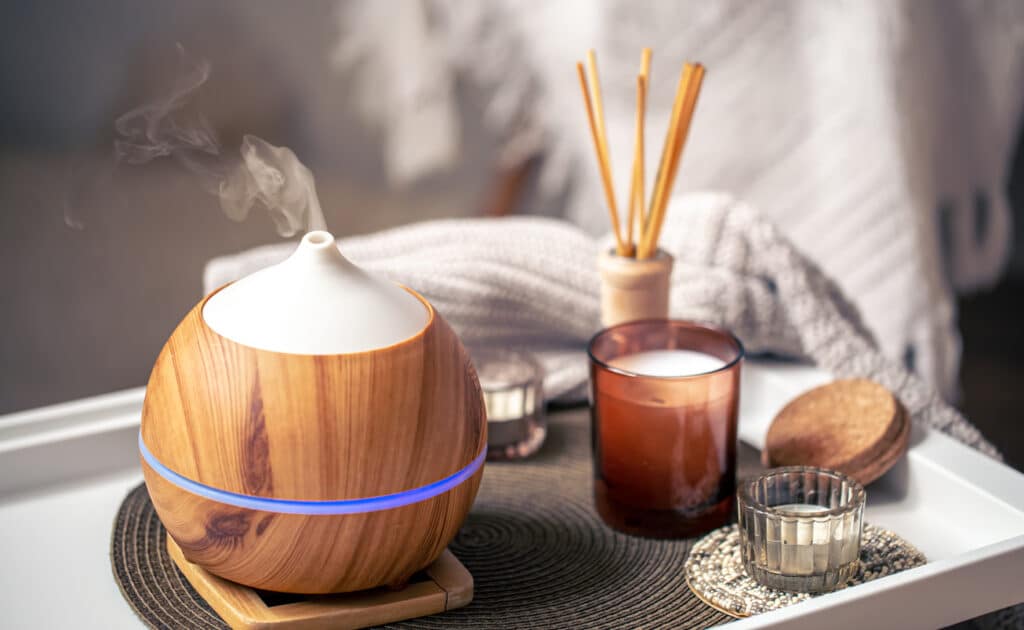
Sleep is a vital part of our overall health and wellbeing, especially as we age. However, many women over 50 often struggle with sleep disturbances, leading to fatigue, mood swings, and even health problems. If you’re one of them, you might be interested in exploring a natural, non-invasive solution: aromatherapy.
Aromatherapy and Sleep
Aromatherapy, the practice of using essential oils for therapeutic benefits, has been used for centuries to promote relaxation and sleep. These oils, extracted from plants, have unique scents that can influence our mood, stress levels, and sleep patterns.
Which Essential Oils Can Help with Sleep?
Here are some essential oils known for their sleep-promoting properties:
Lavender Oil
Lavender is perhaps the most well-known sleep-promoting essential oil. Its calming scent helps reduce anxiety and stress, promoting a sense of tranquility that can lead to better sleep.
Chamomile Oil
Chamomile, often consumed as an herbal tea, also comes in oil form. Its soothing properties can help calm the mind and body, preparing you for a restful night’s sleep.
Bergamot Oil

Unlike most citrus oils, bergamot is calming rather than stimulating. It can reduce anxiety and promote relaxation, making it easier to fall asleep.
Ylang-Ylang Oil
This oil has a unique, floral scent that can promote feelings of comfort and calm, helping you relax and drift off to sleep.
Sandalwood Oil
Known for its warm, woody scent, sandalwood can help quiet the mind, reducing wakefulness and promoting deeper sleep.
Clary Sage Oil
This oil has sedative properties that can induce feelings of relaxation, helping you fall asleep faster and stay asleep longer.
How to Use Essential Oils to Induce Sleep
To use these oils, you can add a few drops to a diffuser or a warm bath before bed. Alternatively, you can mix them with a carrier oil and apply them to your skin. However, remember to do a patch test first to ensure you don’t have an allergic reaction.

In addition to promoting better sleep, aromatherapy can also improve overall wellbeing. The scents of these oils can stimulate the limbic system, the part of the brain that controls emotions and memory, promoting relaxation and reducing stress.
In conclusion, aromatherapy offers a natural, effective solution for those struggling with sleep disturbances. By incorporating these essential oils into your nightly routine, you can create a calming environment that promotes restful, rejuvenating sleep. So, why not give aromatherapy a try and experience the benefits of a good night’s sleep?
To learn more about aromatherapy and how you can use it, read WHAT IS AROMATHERAPY? IT’S MORE THAN JUST A PRETTY SMELL!
Let’s Have a Conversation:
Do you use aromatherapy in your daily life? What do you use it for? Have you tried aromatherapy for better sleep? What results have you noticed? Which oils work best for you?





